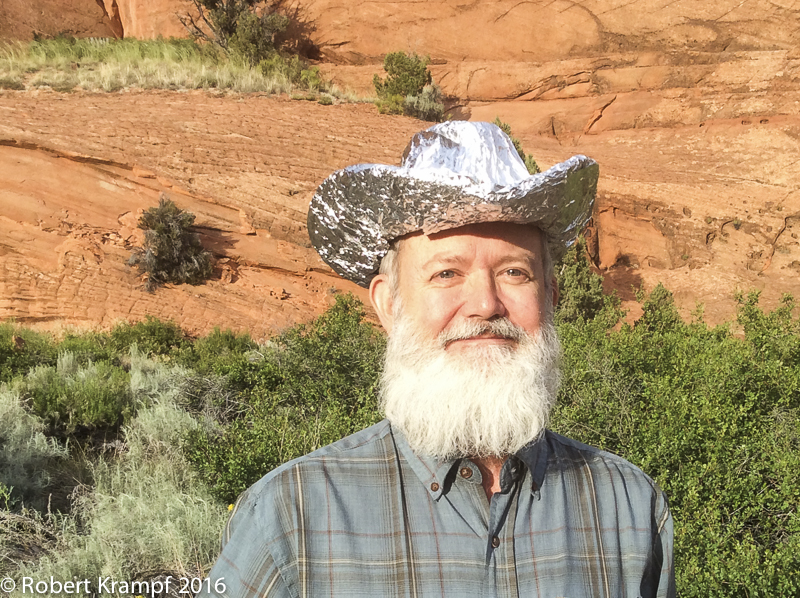
Between my website, Facebook, and other social media, I tend to get into a LOT of conversations about science, especially controversial topics such as climate change, genetic engineering, evolution, vaccines, nuclear power, electromagnetic fields, etc.
One of the things that has surprised me is how few people are universally pro-science or anti-science. Most people are strongly with the consensus of the scientific community on some topics, while being strongly anti-science on others.
Even more interesting is that some people will ridicule an argument on one topic and then turn around and use the same argument to support their anti-science position on another topic.
So how do you know if you are selectively anti-science? Think of all of the topics I listed above as well as any other topics that you have strong feelings about. Then think about the following three options for each, to see which one your position fits.
-
Learn the science.
Learn enough about that particular field of science to be able to read and understand articles in scientific journals on the topic that concerns you. Then read a LOT of journal articles on the topic. Read journal articles that agree with your position and journal articles that don't. Stay away from partisan sites, either pro or con. They have an agenda. You want to get to the point where you can sit down with a scientist who works professionally IN THAT FIELD and have an intelligent conversation. At that point, you are in the position to offer your own informed opinion on the topic. Discuss that opinion with scientists in the field, and listen to what they have to say.
-
Trust the experts.
If you are not willing to put in the time and effort to learn and understand the technical aspects of the topic (It is a LOT of time and study!), then listen to the global consensus of scientists WHO WORK IN THAT FIELD.
That last part is vital. If someone has a stack of degrees in chemistry, then consider them an expert in chemistry, and an amateur in climatology, biotechnology, etc. Just as you would not go to a dentist for advice on repairing your car or seek medical advice from a musician, don’t get your genetics information from an astronomer. Don’t get your climate change information from someone with a degree in statistics. Look at the consensus of scientific studies in that field, and decide to either learn the science yourself or accept that the experts know what they are doing.
Notice that I said "studies." Scientific consensus is not based on how many scientists believe something. It is based on the consensus of scientific papers and research results.
At this point, I almost always hear the argument that all of the scientists who work with this topic have been bought off by Big Ag, Big Pharma, Big Energy, Big Organic, the Devil or the Koch Brothers. Those same people will reject the same argument on scientific topics that they agree on. I always wonder how they can think that all of the scientists who work in fields that they agree with are highly ethical saints who cannot be bought off, and that all of the scientists who work in fields that they disagree with are low life scum who would sell their own mother for a few bucks. It just does not work that way. I am not saying that it never happens with individual scientists, but it only takes a look at the list of retracted journal articles to see that the scientific community can spot a poorly done or biased study, and is quick to condemn them.
If you find yourself in the position of strongly disagreeing with the scientific consensus on a topic, then either go back to option 1 or go ahead to option 3.
-
Admit that you are anti-science on this topic.
If you are not passionate enough about a topic to learn the science, and if you are emotionally opposed to the scientific consensus, then accept that for this topic you are anti-science. That does not mean that you are wrong, but it does mean that your position is not supported by scientific evidence, and science minded people are likely to dismiss your position as unscientific.
It may surprise you to find out that I am OK with folks rejecting science, as long as they are consistent. If you totally reject the ideas of climate change, genetics, vaccines, modern medicine, evolution, nuclear energy, chemistry, electricity, cell phones, and the rest of science, I can respect that. I don’t understand it, but at least you are being honest and consistent. I can respect that.
Unfortunately, the same person who loudly proclaims the overwhelming scientific consensus that humans are the main cause of climate change is often just as loud in rejecting the overwhelming scientific consensus that autism is not caused by vaccines.
If you find yourself strongly disagreeing that you are selectively anti-science, either admit (especially to yourself) that your opinion is driven by emotions instead of facts, or go back to option 1 or 2. Option 2 is much easier, but option 1 is a lot more productive if you care strongly about the topic. It can also be a tremendous amount of fun as you dig in. I highly recommend it.
